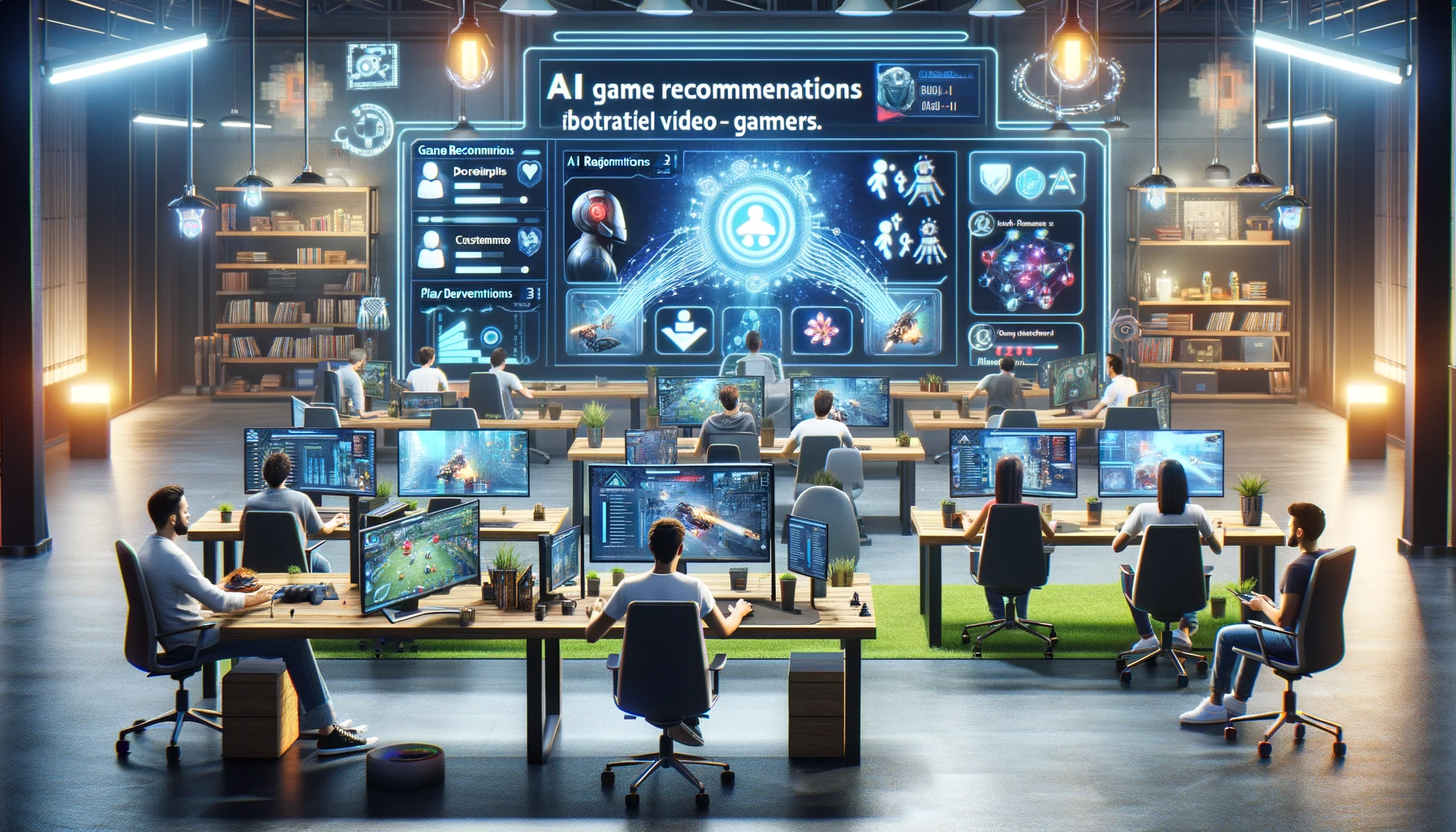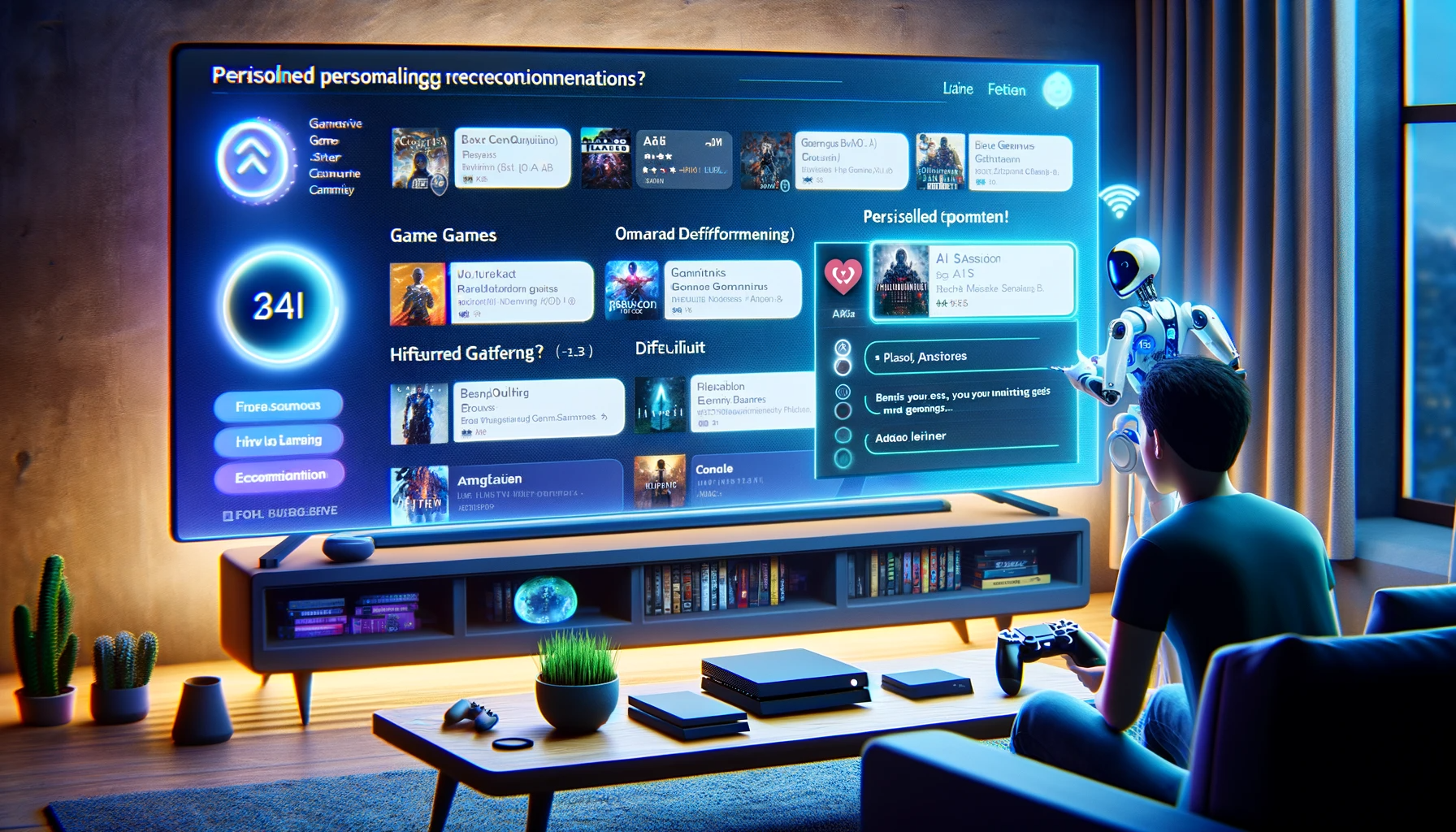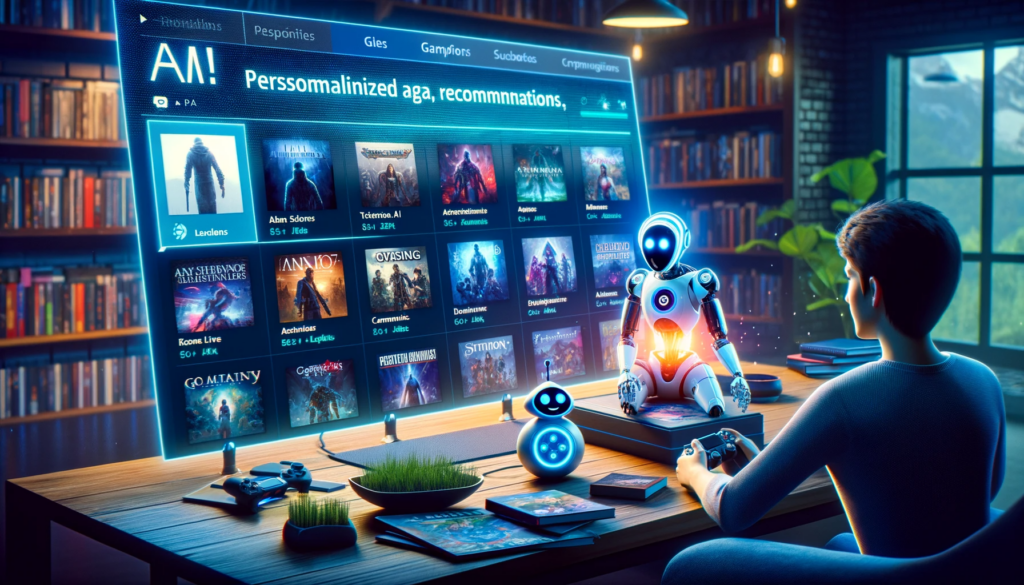In the fast-evolving world of video games, where the volume of content is staggering and new titles are released constantly, gamers often face a daunting challenge—how to discover the next game that will truly captivate them. This is where the power of AI-driven personalized recommendations comes into play.
The gaming industry is not just about entertainment; it’s a massive business with a diverse range of genres, platforms, and communities. Gamers, whether casual or hardcore, need guidance in navigating this vast landscape. Traditional methods like word-of-mouth recommendations and game reviews, while still relevant, are increasingly supplemented and even supplanted by AI algorithms. AI has transformed the way gamers find and enjoy games, making it an essential aspect of the gaming experience.
The Power of AI-Driven Recommendations
The heart of personalized gaming recommendations is the advanced AI algorithms that underlie them. These algorithms ingest and process an extensive array of player data, from in-game behavior to social interactions, and even personal preferences. The goal is to provide gamers with tailored suggestions that align with their tastes and preferences, ultimately enhancing their gaming experience.
AI-driven recommendations leverage techniques such as collaborative filtering, content-based filtering, and deep learning to understand the gaming preferences of individual players. They consider factors like game genres, play styles, difficulty levels, and even the preferred gaming platform. For example, if a player enjoys competitive first-person shooters on a console, the AI can recommend similar titles with multiplayer features and similar gameplay mechanics.

Understanding Gamer Behavior
To deliver accurate and effective recommendations, AI algorithms need a deep understanding of gamer behavior. This involves analyzing various data sources, including but not limited to:
- In-Game Actions: AI tracks what players do within games—whether they prefer a stealthy approach or a more aggressive playstyle, how they solve puzzles, and which characters or weapons they favor.
- Social Interactions: Gamers often engage with friends and the gaming community, discussing strategies, sharing achievements, and even critiquing games. AI can analyze these interactions to gauge a player’s interests and preferences.
- Genre and Title Preferences: Gamers often have a strong affinity for certain game genres, franchises, or titles. AI takes note of these preferences to suggest similar experiences.
- Playtime and Progression: AI tracks the number of hours spent playing, progress within a game, and achievements unlocked. This data helps in understanding a player’s commitment and skill level.
With this comprehensive understanding of gamer behavior, AI can make increasingly accurate predictions about what games a player is likely to enjoy. It can even anticipate future gaming interests, suggesting titles that haven’t been released yet but align with the player’s historical preferences.
AI-driven personalized recommendations have become instrumental in addressing the overwhelming choices gamers face in today’s market. They not only help gamers discover new experiences but also foster a sense of connection and engagement within the gaming community. As we delve deeper into the impact of AI on gaming recommendations, we’ll explore how it enhances game discovery, personalizes in-game content, and confronts ethical challenges in this exciting field.
Enhancing Game Discovery
One of the most significant impacts of AI-powered recommendations in gaming is the ability to enhance game discovery. In a market flooded with thousands of titles across various platforms, it’s easy for exceptional games to go unnoticed. AI algorithms excel at sifting through this vast catalog and presenting gamers with hidden gems they might otherwise overlook.
AI recommendation systems analyze a player’s gaming history and preferences to provide suggestions that align with their interests. These suggestions often encompass a mix of established titles, indie games, and lesser-known gems. As a result, gamers are exposed to a more diverse range of experiences, enriching their gaming journey.
Furthermore, AI can adapt recommendations as a player’s preferences evolve. For example, if a player enjoys exploring open-world RPGs but later shows an interest in competitive online games, the recommendation system can adjust its suggestions accordingly. This adaptability keeps the gaming experience fresh and exciting.
Personalizing In-Game Content
AI-driven recommendations extend beyond game discovery to enhance the in-game experience itself. Games that incorporate personalization features use AI algorithms to tailor gameplay, challenges, and content to each player’s skill level and preferences.
For instance, in a role-playing game (RPG), AI can dynamically adjust the difficulty of encounters based on a player’s performance. If a player is struggling, the AI might reduce the challenge to ensure an enjoyable experience. Conversely, skilled players may face tougher foes for a more satisfying gameplay experience.
Personalization also extends to in-game items and rewards. AI can predict which items or cosmetic enhancements a player is likely to value, ensuring that loot drops and rewards feel meaningful and relevant.
Addressing Ethical Considerations
While AI-driven personalized recommendations offer numerous benefits, they also raise ethical considerations. Game developers and AI providers must navigate issues related to player privacy, data security, and the potential for addiction.
To provide personalized recommendations, AI systems collect and analyze player data, including gaming habits, social interactions, and personal preferences. Protecting this sensitive data is paramount. Game companies must implement robust data security measures to safeguard player information and ensure compliance with privacy regulations.
Additionally, there’s a concern about the potential for AI to encourage excessive gaming or addictive behaviors. AI recommendation systems should strike a balance between enhancing the gaming experience and promoting responsible gaming practices. This includes features like time limits, notifications, and parental controls to prevent gaming addiction.

The Future of AI-Powered Gaming Recommendations
The future of AI-powered gaming recommendations looks promising. As AI algorithms continue to advance, they will become even more adept at understanding player preferences and delivering highly personalized experiences.
AI’s role in game development is also expanding. Developers are using AI to create procedurally generated content, dynamic narratives, and realistic non-player characters (NPCs). These innovations will further enhance the depth and immersion of games.
Moreover, AI-driven recommendations may extend beyond games themselves. Gaming platforms are integrating AI to suggest gaming-related content such as live streams, tutorials, and merchandise, creating a holistic gaming ecosystem.
In conclusion, AI has revolutionized the gaming industry by providing gamers with personalized recommendations that enhance game discovery, tailor in-game experiences, and adapt to changing preferences. While ethical concerns remain, responsible implementation and player-focused features can mitigate these challenges. As AI technology continues to evolve, the future of personalized gaming experiences is undoubtedly exciting, promising richer and more engaging adventures for gamers worldwide.
